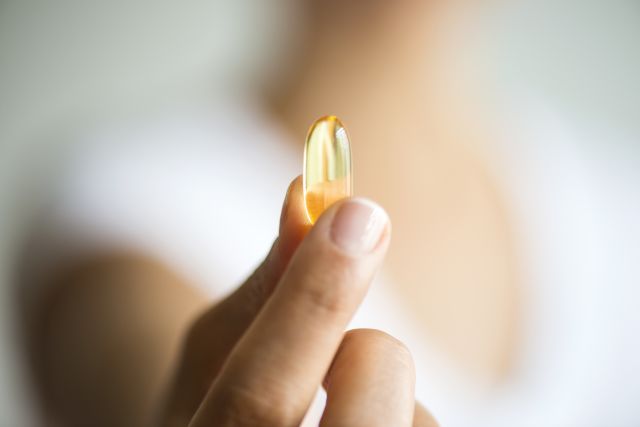You may think you're eating well to control your inflammatory bowel disease (IBD) symptoms, but ulcerative colitis and Crohn's disease can do a number on your nutrition behind the scenes. Living with IBD, taking certain medications and undergoing surgery can lead to problems from mineral absorption to dehydration to osteoporosis, explains Robin Miller, MD, an integrative medicine specialist and medical director of Triune Integrative Medicine in Medford, Oregon.
If you're living with a form of IBD, ask your healthcare provider (HCP) if you're at risk for these common nutritional problems and whether you should be taking vitamin or nutritional supplements.
- Iron: About one-third of people with IBD have an iron deficiency, which can be due to not getting enough iron in your diet, your body not absorbing iron very well or blood loss, says Dr. Miller. Your HCP may suggest a liquid iron supplement that's gentle on your stomach and easy for your body to absorb, or you may need to take iron by intravenous (IV) supplementation. The dosage varies according to how low your iron levels are.
- Vitamin B12: About 10-20 percent of people with Crohn's disease are deficient in vitamin B12. Surgery to remove part of the ileum—the section of small intestine where vitamin B12 is absorbed—raises the risk of deficiency, and usually means you'll need to supplement your diet going forward. Vitamin B12 is often given as a monthly injection.
- Folate: Nearly one-third of patients with Crohn's disease and about 10 percent of people with ulcerative colitis have a folate deficiency. Reasons include a poor diet, poor absorption and side effects of your medications (such as sulfasalazine and methotrexate). Usually 1 mg a day is enough, but your HCP will know what's right for you. Taking a folate supplement is recommended for people taking methotrexate or sulfasalazine and women who are pregnant, says Miller.
- Calcium: In IBD, calcium deficiency is usually due to a poor diet, poor absorption and diarrhea. Corticosteroids can also lower your calcium absorption, which can lead to delayed growth in children and osteoporosis in adults, explains Miller. The recommended dosage is 1,000 to 1,500 mg per day, which should be divided into two to three doses of 500 mg each. Calcium citrate is the easiest form to absorb, especially if you're also taking a proton pump inhibitor, a medication that reduces stomach acid, says Miller.
- Vitamin D: As many as two-thirds of people with Crohn's disease and up to 45 percent of those with ulcerative colitis have a vitamin D deficiency, mostly due to a poor diet. In Crohn's, surgery that removes the small bowel makes absorption difficult. Most people with IBD need 1,500 to 2,000 IUs of Vitamin D3 daily, but you may need more if you're on steroids or if you're overweight, Miller says.
- Magnesium: Anywhere from 10 percent to nearly 90 percent of IBD sufferers have a magnesium deficiency. Diarrhea can contribute to this problem, but taking magnesium supplements can make diarrhea worse. People need to be tested for magnesium deficiency and then treated based on the results. Intravenous supplementation is often used for severe deficiency.
- Multivitamin: Because people with IBD tend to have trouble absorbing minerals and micronutrients, a general multivitamin is a good idea to help maintain healthy levels of essential nutrients.
Remember, don't start taking any IBD supplements without talking to your healthcare provider first. During a routine checkup, your healthcare provider can evaluate your symptoms and perform blood tests to see which nutritional supplements you may need.





